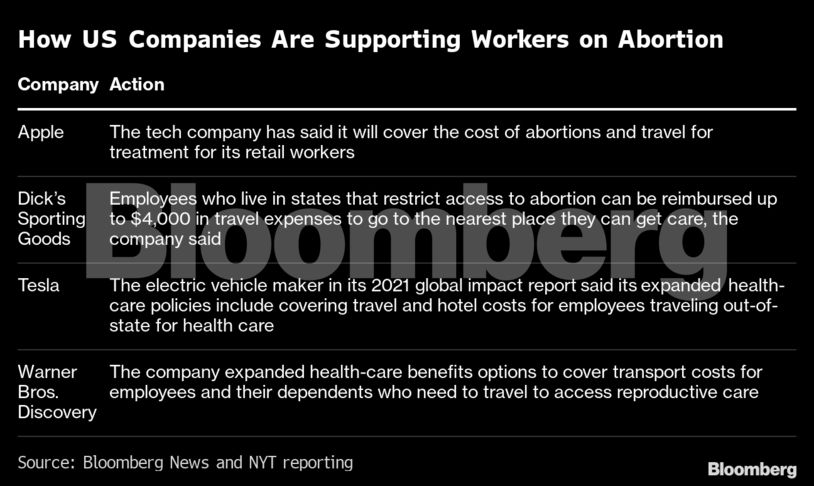For money managers who invest billions of dollars in accordance with Catholic teachings, the toppling of the half-century-old US ruling that protected abortion rights was a moment of celebration.
But it also left these pro-life investors in a bind. Many of the blue-chip company stocks they hold, including Apple Inc. and Tesla Inc., have announced they will cover travel costs for employees in states where abortion is banned.
“We're not going to own companies that violate our basic moral values,” said Art Ally, founder of Timothy Plan, a Biblically-based fund that manages about $2 billion. “I don't want any company that I own shares in spending money to send somebody off to get an abortion.’’

The Supreme Court’s reversal last month of the nationwide right to abortion has for the first time put a spotlight on employee benefits for managers of Catholic funds. The funds typically shun corporations with products and services that conflict with their religious beliefs. They often avoid companies that donate to groups such as pro-choice advocates Planned Parenthood or engage in similar forms of corporate influence. Some managers follow guidelines set by the US Conference of Catholic Bishops for its own investments, which bars owning shares in companies that are directly involved or provide support for abortions.
About $31 billion is invested in Christian-based mutual funds and exchange-traded funds in the US, according to data compiled by Bloomberg, and billions more are in accounts with similar trading strategies.
In Boise, Idaho, money managers at Inspire Investing, which oversees $2 billion, started working the phones to arrange meetings with officials at Warner Bros. Discovery Inc., Dick’s Sporting Goods Inc. and Urban Outfitters Inc. to persuade the companies to change their stance on supporting employee abortions. If the discussions fail, there will be repercussions that may include filing shareholder resolutions or removing the companies from Inspire’s faith-based indexes, said founder Robert Netzly.
“As shareholders, we would rather our dividends not subsidize something that is deeply antagonistic to our faith-based beliefs,’’ he said.
Most companies are willing to have at least introductory conversations and sometimes those discussions lead to change, he said, citing an instance where a large oil company stopped donating to Planned Parenthood.
Inspire is working with other Christian-based investors to contact as many as 80 companies to persuade them to reconsider their policies on covering out-of-state reproductive health care, Netzly said.








